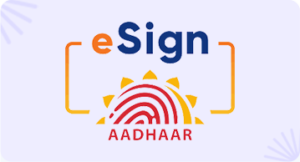Aadhaar eKYC Remarkable Advantages – Speed, Saving and Security
In the digital age, identity verification is a crucial component of countless services and transactions. Aadhaar eKYC (Electronic Know Your Customer) has emerged as a transformative solution in India. This blog post aims to explore the nuances of Aadhaar eKYC and shed light on its three incredible advantages. Additionally, we will delve into the role of MSB Docs in facilitating and enhancing the Aadhaar eKYC process.
Introduction
Aadhaar, a unique 12-digit identification number issued by the Unique Identification Authority of India (UIDAI), has become a cornerstone of identity verification in India. Aadhaar eKYC is an electronic means of verifying an individual’s identity using their Aadhaar details. It eliminates the need for paper-based documentation and speeds up the verification process significantly.
What is Aadhaar eKYC?
Aadhaar eKYC is an innovative method for verifying an individual’s identity. It leverages the Aadhaar database to authenticate a person’s identity quickly and accurately. This electronic verification process is based on the biometric and demographic data associated with an individual’s Aadhaar number.
The UIDAI plays a central role in Aadhaar eKYC, overseeing and regulating the process to ensure data security and accuracy. The system employs stringent security measures to protect sensitive personal information.
The Legal Framework
Aadhaar eKYC operates within a robust legal framework. The Aadhaar (Targeted Delivery of Financial and Other Subsidies, Benefits, and Services) Act, 2016, forms the backbone of the Aadhaar system. The Supreme Court of India has issued rulings on the legality and constitutionality of Aadhaar, which have set clear guidelines for its use.
Several regulatory bodies, such as the Reserve Bank of India (RBI) and the Telecom Regulatory Authority of India (TRAI), oversee Aadhaar eKYC in their respective domains. These regulations ensure that Aadhaar eKYC is conducted within the boundaries of the law.
Advantages of Aadhaar eKYC
Aadhaar eKYC offers three incredible advantages:
Speed and Efficiency
The traditional paper-based verification process is often time-consuming and cumbersome. It involves submitting multiple documents and waiting for verification. Aadhaar eKYC simplifies this process significantly. With just a fingerprint or iris scan and the entry of your Aadhaar number, your identity can be verified in seconds. This efficiency is especially crucial in financial and telecom sectors, where quick customer onboarding is essential.
Consider the example of a customer opening a bank account. With Aadhaar eKYC, the verification process that used to take days or even weeks can be completed in minutes. This speed not only benefits customers but also reduces operational costs for businesses.
Cost Savings
One of the most compelling advantages of Aadhaar eKYC is the significant cost savings it offers. Traditional KYC processes involve the collection and storage of physical documents, leading to high operational costs. In contrast, Aadhaar eKYC is paperless and digitized, reducing the need for physical storage and document handling.
The environmental impact is also noteworthy. Reduced paper usage leads to a decrease in deforestation and less energy consumption, contributing to a greener environment.
Enhanced Security
Aadhaar eKYC incorporates robust security measures to protect personal information. Biometric authentication, including fingerprint and iris scans, provides a high level of security. Additionally, all data transmitted during the eKYC process is encrypted, ensuring that sensitive information remains confidential.
Aadhaar eKYC in Practice
Aadhaar eKYC is not just a theoretical concept; it is being used extensively in real-world applications The UIDAI has implemented strict data protection and privacy safeguards to prevent misuse of Aadhaar data. This includes stringent penalties for any unauthorized access or sharing of Aadhaar-related information.
Let’s explore some of the sectors where it has made a significant impact.
Banking and Financial Institutions
Banks and financial institutions have greatly benefited from Aadhaar eKYC. Opening a bank account, applying for loans, and conducting financial transactions are now more straightforward and efficient. In fact, many banks now offer instant account opening services, thanks to eKYC.
Consider a scenario where a customer walks into a bank branch to open an account. Instead of filling out multiple forms and providing stacks of documents, the customer can simply provide their Aadhaar number and biometric data. The bank’s systems verify the identity in real-time, allowing the customer to start using their account immediately.
Telecom and Mobile Services
The telecom sector has seen a revolution with the implementation of Aadhaar eKYC. Getting a new mobile connection used to be a lengthy process, requiring multiple forms and documents. Now, with eKYC, customers can walk into a store, provide their Aadhaar number and biometric data, and walk out with a working SIM card within minutes.
This speed and efficiency have also curtailed the misuse of mobile connections for illegal activities, as customer details are verified instantly.
Government Services and Subsidies
Aadhaar eKYC has streamlined access to government services and subsidies. It ensures that benefits are delivered directly to the intended recipients, reducing leakage and corruption in welfare programs.
The Public Distribution System (PDS) is a prime example. Aadhaar eKYC has been used to link ration cards with Aadhaar numbers, ensuring that subsidized food grains and other essentials reach the right beneficiaries.
MSB Docs and Aadhaar eKYC
MSB Docs, a prominent player in the realm of digital solutions, plays a pivotal role in facilitating and enhancing Aadhaar eKYC. MSB Docs provides cutting-edge technology and services that enable businesses and organizations to seamlessly integrate Aadhaar eKYC into their operations.
Their solutions ensure that eKYC processes are not only efficient but also fully compliant with the regulations and guidelines set by the UIDAI and other regulatory bodies. With MSB Docs, businesses can achieve a seamless onboarding process for customers, enhancing the overall user experience.
MSB Docs offers a range of services that enhance Aadhaar eKYC:
Aadhaar API Integration
MSB Docs offers an Aadhaar API that businesses can integrate into their systems. This API enables real-time Aadhaar verification, ensuring that customer information is accurate and up-to-date. It allows businesses to authenticate customers using Aadhaar data, making the onboarding process faster and more secure.
Aadhaar eSign
MSB Docs offers Aadhaar eSign services, which allow users to digitally sign documents using their Aadhaar details. This is a secure and legally valid method of signing documents, reducing the need for physical paperwork and manual signatures.
Mobile-Based eKYC Solutions
MSB Docs provides mobile-based eKYC solutions, allowing businesses to verify customer identities remotely. This is especially valuable in the era of digital transactions, where in-person verification may not always be possible.
Challenges and Concerns
While Aadhaar eKYC has revolutionized identity verification, it’s not without its challenges and concerns.
Addressing Concerns About Privacy and Data Security
One of the primary concerns surrounding Aadhaar eKYC is the potential misuse of personal data. In response, the UIDAI has implemented stringent security measures, including encryption and biometric authentication, to protect user data. It’s crucial to maintain a balance between convenience and data security to address these concerns adequately.
Potential Misuse of Aadhaar Data
There have been instances of unauthorized access to Aadhaar data, leading to concerns about data misuse. To mitigate this, the UIDAI has introduced penalties for unauthorized access and sharing of Aadhaar-related information.
The government is also working on enhancing cybersecurity measures to safeguard the Aadhaar ecosystem further.
Government Response and Measures to Address Concerns
The government of India is committed to addressing concerns regarding Aadhaar eKYC. It has been actively working to enhance the legal framework, improve data protection, and address privacy issues. As the system evolves, it’s expected that concerns will be effectively mitigated.
International Comparisons
Aadhaar eKYC has garnered attention internationally due to its effectiveness and innovation. It’s worth comparing Aadhaar eKYC with similar systems in other countries.
How Aadhaar eKYC Compares to Similar Systems in Other Countries
While India’s Aadhaar eKYC is a pioneer in its own right, other countries have also developed electronic identity verification systems. These systems vary in their approach and features. Comparing these systems can provide insights into the strengths and weaknesses of Aadhaar eKYC.
The Future of Aadhaar eKYC
Aadhaar eKYC is not a static concept but a dynamic one, adapting to the changing digital landscape. The future of Aadhaar eKYC holds promising developments.
Emerging Trends and Developments
As technology continues to advance, Aadhaar eKYC is likely to benefit from emerging trends such as artificial intelligence and blockchain. These developments can further enhance the accuracy and security of the system.
Potential for Aadhaar eKYC in Other Sectors
Aadhaar eKYC is not limited to a few sectors. Its potential spans across industries, including healthcare, education, and e-commerce. For instance, in healthcare, eKYC can simplify patient identification and access to medical records securely.
Technological Advancements and Innovations
Continuous innovation will drive the evolution of Aadhaar eKYC. The integration of eKYC with emerging technologies and the development of user-friendly mobile applications can make the process even more accessible and convenient.
Case Studies on the Adoption of eKYC Globally
Several countries have started adopting electronic KYC systems for various purposes, from opening bank accounts to verifying identities for government services. Case studies from these countries can shed light on the potential applications of Aadhaar eKYC on a global scale. Let’s explore a few such instances:
Banking and Financial Inclusion – The Story of Ramesh
Ramesh, a resident of a remote village, wanted to open a bank account to access government subsidies directly. The nearest bank branch was miles away, and traditional paperwork was daunting. However, the local bank set up an Aadhaar eKYC center, enabling Ramesh to open an account in a matter of minutes. He now receives subsidies on time, improving his financial inclusion.
Telecom Revolution – The Case of Prepaid SIM Activation
Before Aadhaar eKYC, activating a prepaid mobile SIM involved endless paperwork and waiting periods. With the introduction of eKYC, customers can walk into a mobile store, provide their Aadhaar number and biometric data, and leave with an activated SIM card within minutes.
PDS Efficiency – Transforming the Public Distribution System
The Public Distribution System (PDS) has been plagued by issues like leakages and corruption. By linking ration cards to Aadhaar numbers, the government has ensured that subsidized food grains and essentials reach the right beneficiaries, reducing wastage and improving efficiency.
Conclusion
Aadhaar eKYC has transformed the landscape of identity verification in India. Its three incredible advantages – speed and efficiency, cost savings, and enhanced security – have not only simplified processes but also improved access to services and subsidies for millions.
Moreover, with the active involvement of organizations like MSB Docs, the Aadhaar eKYC process has become more efficient and user-friendly, ensuring businesses can seamlessly integrate this technology into their operations.
As Aadhaar eKYC continues to evolve and adapt to the changing digital world, it promises even more remarkable benefits for both businesses and consumers. The challenges and concerns surrounding privacy and data security are being actively addressed by the government and regulatory bodies.
In conclusion, Aadhaar eKYC has demonstrated how innovative digital solutions can improve the lives of people, enhance the efficiency of businesses, and contribute to a greener, paperless environment. While challenges remain, the future of Aadhaar eKYC is indeed promising, and its potential for broader applications continues to expand. To experience the benefits of Aadhaar eKYC and explore how MSB Docs can streamline your identity verification processes, we invite you to book a demo with MSB Docs today.
FAQs
1. Is Aadhaar eKYC secure, considering the concerns about data privacy?
Yes, Aadhaar eKYC is secure. It incorporates robust security measures, including biometric authentication and data encryption, to protect personal information. The UIDAI has stringent safeguards in place to prevent data misuse.
2. How is Aadhaar eKYC more environmentally friendly than traditional verification methods?
Aadhaar eKYC is paperless and digitized, reducing the need for physical document storage and usage. This results in less paper waste and contributes to a greener, more sustainable environment.
3. Can I use Aadhaar eKYC for services other than banking and telecom?
Yes, Aadhaar eKYC’s potential spans across various sectors, including healthcare, education, and e-commerce. It simplifies identity verification and can be applied to a wide range of services.
4. What role does MSB Docs play in Aadhaar eKYC, and why is it important?
MSB Docs plays a crucial role in facilitating and enhancing Aadhaar eKYC. They offer technology and services that allow businesses to seamlessly integrate eKYC into their operations, making the onboarding process more efficient and user-friendly.
5. How does Aadhaar eKYC compare to similar systems in other countries?
Aadhaar eKYC has garnered international attention for its effectiveness. While other countries have developed similar systems, Aadhaar’s unique approach and features make it a pioneer in the field of electronic identity verification.



